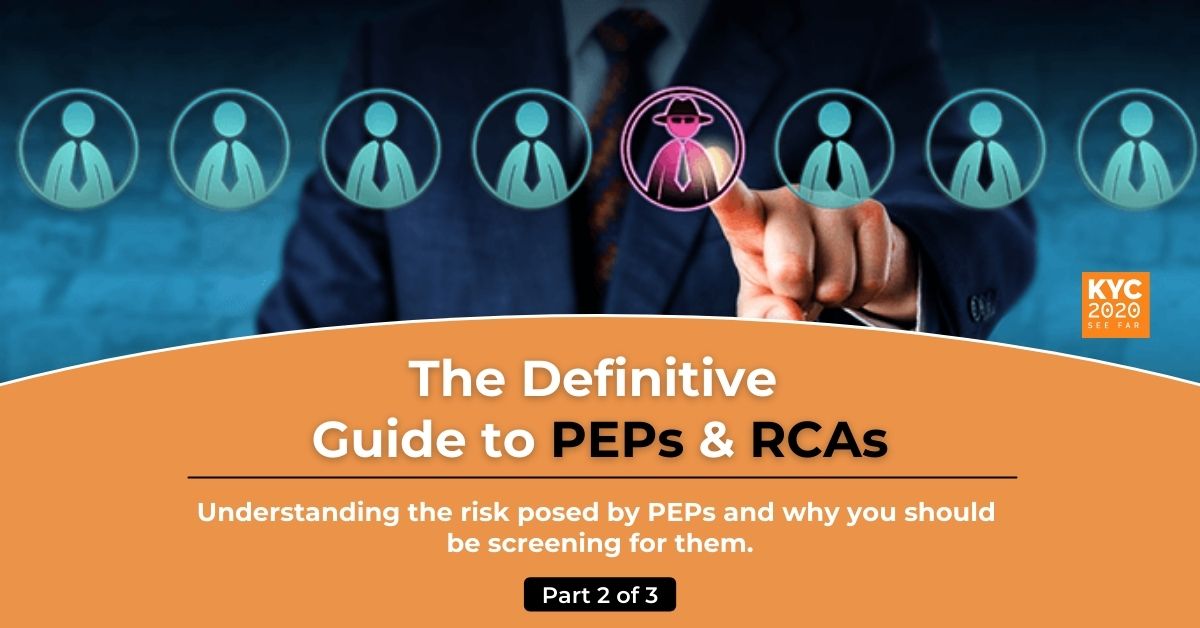When I was hired on to help KYC2020 with their marketing strategy, I was completely new to the concept of AML complaince solutions. I never thought seriously about the threat of money laundering. Nor had I thought about what steps companies would need to take to be compliant with AML regulatory standards. But I knew that to do my job I’d need to learn. And what better use could I have for that information than to write about it? In the Newcomer’s Guide to AML Compliance, I’ll be discussing my discoveries and lay a framework for the more advanced posts on this blog. So without further adieu, let’s jump straight into The Newcomer’s Guide to Protecting Your Small Business from Money Laundering.
Money laundering may seem like it’s only a problem for large institutions but small businesses are at the same, if not higher, risk than their large counterparts. Though it may seem like large businesses would present more opportunity for criminals to money launder, they also tend to have robust anti-money laundering solutions. On the other side, small businesses, especially start-ups, often don’t have the personnel, expertise, and/or resources to keep up with a sufficient AML protocol, making them easy targets.
If you own a small business it is imperative that you know how to protect your small business from money laundering. Here are four tips to get you started.
1. Constant Vigilance
It may seem like an obvious thing but one of the most powerful tools your business has against Money Laundering is to be aware of any transactions going on under your company’s name. Keep tabs on the flow of cash in and out of your company. A methodical approach to your company’s transactions will ensure that, if anything suspicious should arise, you’ll have a far better chance of noticing before your auditor notices.
Some things to look out for are:
- Keep an eye out for customers that are always paying with prepaid credit cards (the cards are often used to erase a tangible money trail)
- Be wary of large online transactions and promptly notify authorities if need be
- Avoid sharing passwords or bank account details with random clients
2. Make Sure Your Team is on Board
As an owner, you should be sure to keep track of your company’s finances, but you should never be the only one worried about money laundering. Formulating an official anti-money laundering policy helps your staff identify exactly what they need to do operate, while minimizing exposure.
Here are some precautionary measures that you may take
- Maintaining proper financial records like audits and bank statements that might help you identify any abnormal activity in the transactions
- Authorize the access of confidential and sensitive files
- Upgrade security systems and change passwords routinely
3. KYC Protocol
‘Know Your Customer’ is a pretty popular term in the AML world. What this boils down to is you should always conduct a background check on anyone you conduct business with. When it comes to AML regulations, there is no sympathy for companies that unwittingly launder money. It is every company’s responsibility to have a KYC protocol that minimizes the risk of doing business with off-limits clientele.
A good KYC protocol might include:
- Collecting substantial customer information before conducting transactions
- Verifying the legitimacy of big transactions
- Spotting fake identities and incomplete paperwork
In short, keep your guard up whenever someone new approaches your business. You shouldn’t accept funds until you’ve verified the source.
4. Secret Weapon
Lastly, anti-money laundering processes can be costly. They also require a lot of human oversight and labor. For a small business, this can wildly distracting and leads to many small businesses failing to implement AML compliance policies properly.
If you feel that your organization is not prepared to undertake this task, then you can always use AML compliance solutions. These solutions are a secret weapon against the fight against money laundering. By lowering the barrier to access, cost, and required labor, these tools give small businesses sensible and sustainable solutions to this age old problem.
If you want to read more about some of KYC2020’s solutions, you can read more here.
To Sum it up
It’s important that you take the necessary steps to avoid being a conduit for a money laundering scheme. You need to proactively prevent the threat by being alert during transactions and new partnerships. Additionally, get the employees involved and actively enforce AML compliance rules. All these steps will help you combat money laundering in a better way.








